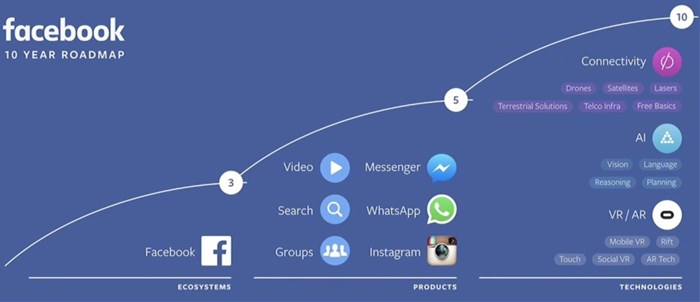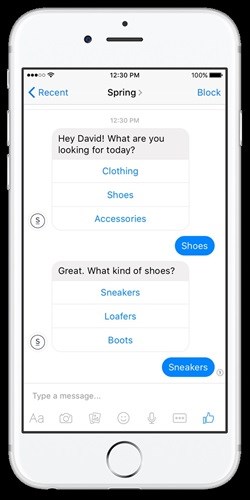Use a Facebook chatbot to transform customer experience
While it is always exciting to hear from companies who have a bold vision for the future, especially when they spew so many acronyms, what had business leaders most in awe was the announcement of the Messenger Platform and its integrated chatbot functionality. Over the last few years Facebook has done a lot to become increasingly relevant to businesses and this is just their latest salvo to woo them.

What is a chatbot?
Chatbots have been with us for quite some time and are nothing else than an automated program that can interact automatically with a person during an online chat session (such as with WhatsApp, Skype or FB Messenger itself). Over the years the capabilities of chatbots everywhere have improved dramatically and we now expect the interaction to be valuable, fun and ideally indistinguishable from how we would interact with another person.
Why is the Facebook announcement significant?
Now that Facebook is allowing developers access to their Messenger chatbot platform they create a massive opportunity for businesses who want to engage with their customers in a very natural way, i.e. by chatting with them. During the conference keynote, CEO Mark Zuckerberg said: “I’ve never met anyone who likes calling a business. We think there’s got to be a better way to do this.” And this is exactly what they are trying to achieve.
Reimagining the customer experience
Now, put yourself into the shoes of your regular customers and identify all the scenarios where they need help with something. Think of product support, product selection, profile changes or complaints. Then ask yourself what options you currently provide to get this help as well as how your customers would rate their satisfaction with the chosen channels.
If you rate the experience of your customers as low, you can at least pat yourself on the back for being honest. The unfortunate reality is that customers are almost never happy with the service they receive and there is lots of room for improvement.
Imagine this...

Instead of having customers write an email (which may only be answered days later) or pick up the phone (only to be greeted by a call-queuing system), you could present your customers with the option of connecting directly with your company using a tool they already know very well: Facebook Messenger. And the beauty is that the interaction happens almost exactly as if they were communicating with one of their friends.
First they state their need using natural language. Then, like magic, the friendly chatbot gives them the exact answer they are looking for, whether this is hotel room availability, the latest status update on a support request or even the delivery status of an order. Next your chatbot asks what action it should execute and it may provide a few helpful options. In our previous example the customer can now choose to book a specific hotel room, provide additional clarifying notes for the support request or re-route the order to a different delivery address.
And all of this happens in the background, without involving any real persons, without sending the customer to a new web page or even requiring the installation of an app. The customer never has to leave the FB Messenger environment, making interactions with your business really simple and quite possibly fun - especially when your competitors can’t offer this service. Now that is really, really powerful!
The challenges of getting started
What a business needs to get started is a Facebook developer account, admission to the FB Messenger platform beta program, some basic coding skills and a willingness to play around and of course accept the occasional glitch. You of course also need to have some customer-facing business processes that would benefit from a chatbot interface. And finally the business processes you have selected need to have been digitalised. After all, you want maximum customer benefit with as little as possible effort from your employees.
Unfortunately, however, it is this last requirement which I believe will be the biggest stumbling block for South African businesses. While helping mostly SMEs in Cape Town with their digital transformation needs, it has become very clear that although most organisations have a reliable and cost-effective IT platform, they are also very far from having automated and optimized business processes. And since this is a pre-requisite for deploying chatbot technologies, my recommendation would be to gain inspiration from what will soon become reality but choose to focus extensively on transformation efforts to digitalise customer-facing business processes.
This will not only give your business a platform to experiment with chatbots but it will also open up many new opportunities for leveraging digital technologies for differentiation in the market.






























